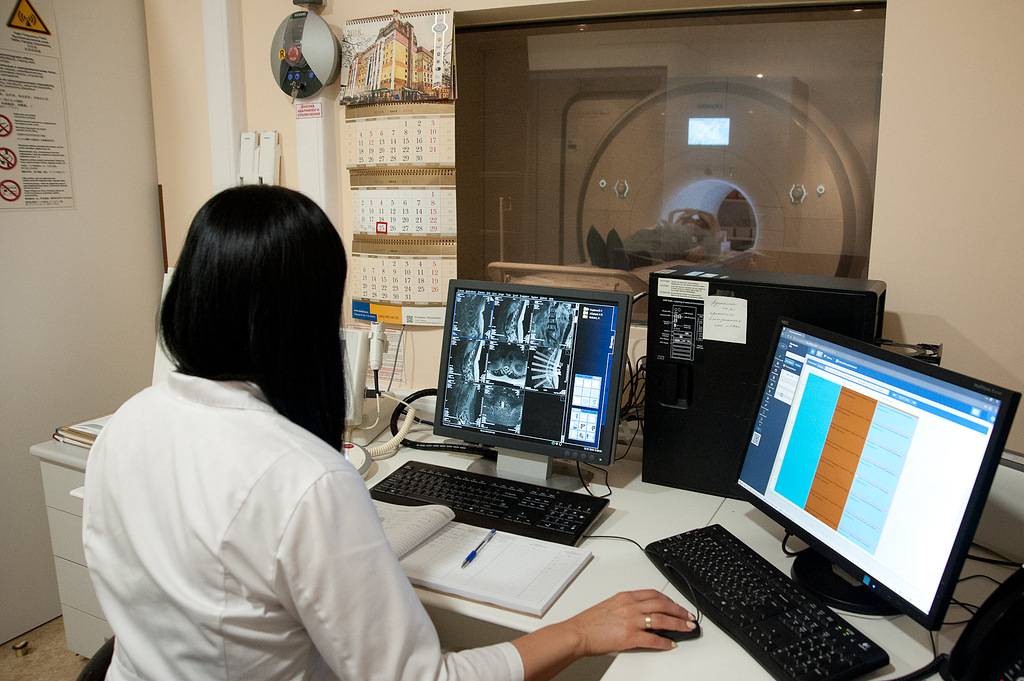MRI of the shoulder joint

Magneto -resonant imaging of the shoulder joint is a safe method of studying the structure of bone, muscle fibers, tendons in the presence of pain, injuries and pathological changes in the shoulder. Compared with X-ray, MRI does not have radiation effects and visualizes both bones and soft tissues well.
The power of the MRI apparatus in JSC "Medicina" Clinic (Professor Roytberg Clinic) is 3 Tesla. The research is conducted around the clock.
Possibilities of MRI of the shoulder joint
MRI of the shoulder is prescribed mainly in traumatology, with suspicion of fractures, cracks or hematomas. This method of research is also used for pathological neoplasms in the shoulder area. It is also used to track the degree of tissue recovery after surgery, severe injuries.
The shoulder joint has a rather complex structure. It can be difficult to determine which structures in it are affected. X-ray diagnostics is available mainly in the study of bone structures. And the magnetic resonance technique makes it possible to obtain information about all anatomical components of the joint, which significantly expands the diagnostic and therapeutic capabilities.
Most of the diseases diagnosed by MRI of the shoulder joint are inflammatory or traumatic in nature. Their identification does not require contrast enhancement, therefore, an MRI of the shoulder, as a rule, takes place without contrast. In case of suspicion of a tumor, the use of contrast agents is permissible to determine its more precise boundaries and the extent of its length.
Tumors always have a developed circulatory system and are clearly visible after the drug enters the bloodstream. Within a few days after diagnosis, the contrast is removed from the body without negatively affecting the person.
Indications for MRI of the shoulder joint:
- dislocations, fractures, sprains of the shoulder joint;
- the presence of fluid (blood, pus) in the joint;
- bursitis, arthrosis;
- contraindications to radiography (pregnancy, taking a series of x-rays the day before, etc.);
- preparation for shoulder surgery;
- tumors in the shoulder joint;
- monitoring the condition of the shoulder after surgery.
Contraindications to MRI of the shoulder joint
MRI with contrast is not used during pregnancy and breastfeeding. Preparations for contrast can adversely affect the formation of tissues and organs of the fetus, and when penetrated into milk, enter the body of a newborn baby. In patients with renal failure, diabetes mellitus in the stage of decompensation, contrasting is also not performed.
An MRI of the shoulder rarely requires the use of contrast. A simple technique is not carried out in patients with a pacemaker and various metal objects implanted into the body.
Doctors













